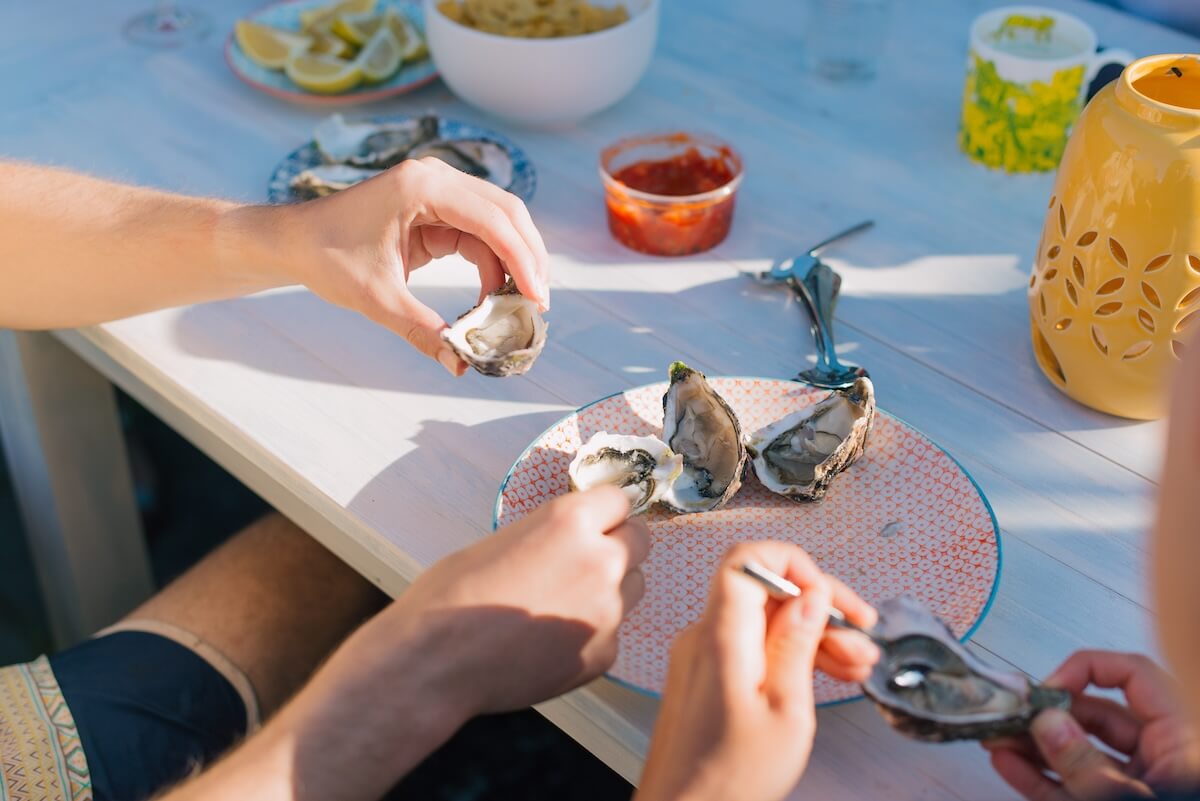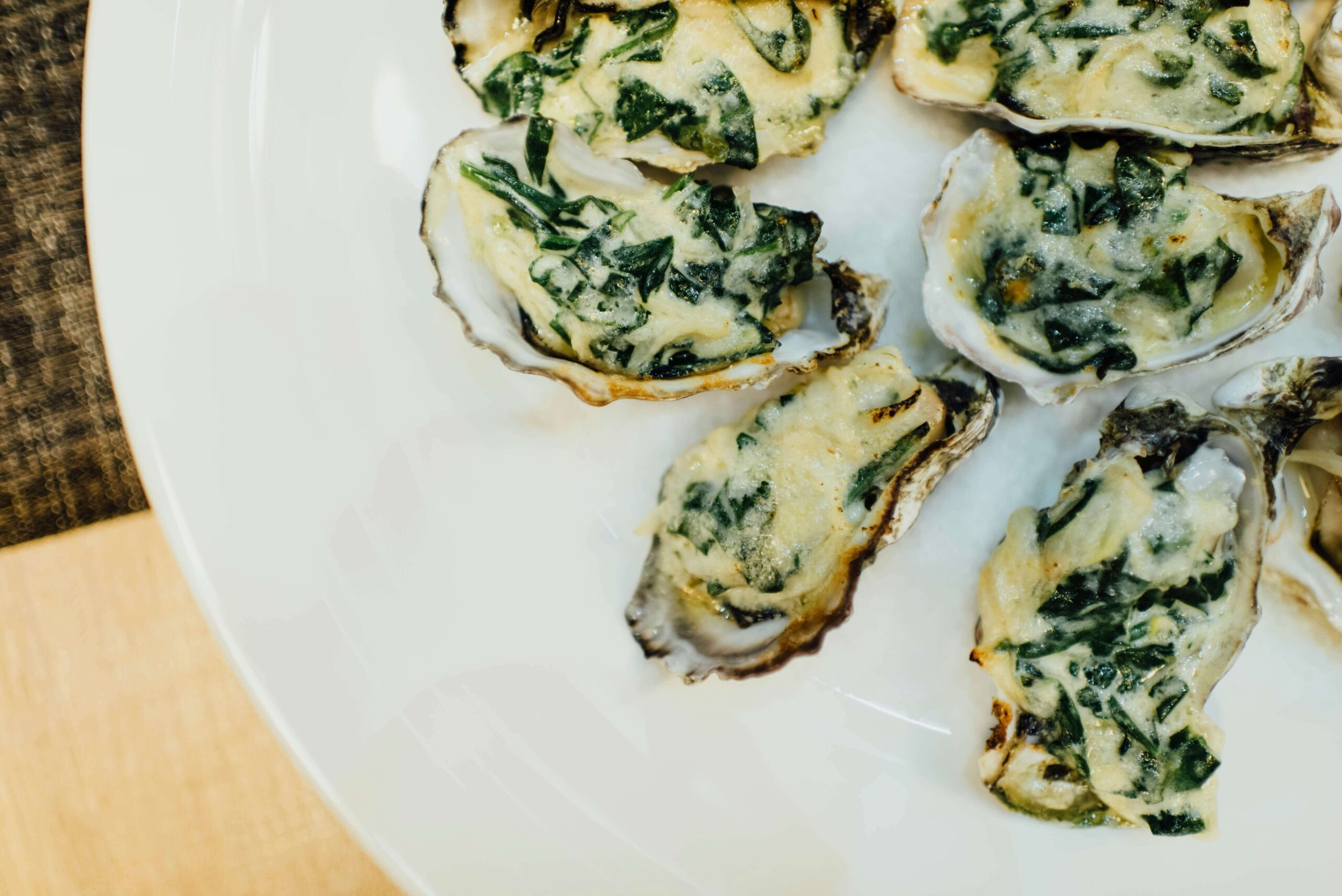victims for over 25 years.
Questions to Ask a Restaurant Before Eating Raw Oysters
Due to a growing concern with a bacterium known as Vibrio vulnificus, oyster lovers should be on alert when it comes to eating oysters. It is simply no longer safe to eat oysters raw, especially if you don’t know which waters they came from, and how they were harvested and stored. But if you insist on eating raw oysters, here are a few questions you should ask the restaurant. These could literally save your life.
Questions to Ask Before Eating Oysters

- Where do your oysters come from? In my experience, no one should eat oysters that come from the Gulf of Mexico because the waters are so warm year-round.
- When were the oysters harvested? The restaurant should know the exact time, location and date they were harvested, and they should have tags to prove it.
- When did you receive these oysters? In my experience, you are taking a risk with oysters that are more than 10 days old from the date of harvest.
Red Flags – When You Shouldn’t Order Raw Oysters
- If the staff cannot readily answer your questions, then they are not used to serving oysters. That’s not a good sign for you.
- If oysters aren’t on the menu and the restaurant suddenly has an “oyster special,” you should avoid those oysters.
Most restaurants that serve oysters responsibly will happily answer all of your questions because they understand the seriousness of this issue. They also take pride in assuring their customers’ health.
Why Are Raw Oysters Dangerous?

“Global warming has led to warmer oceans, which enables a Vibrio vulnificus to grow and bloom inside oyster shells,” says Scott O’Sullivan, nationally recognized Vibrio attorney. “If you don’t cook your oysters, you could be ingesting a bacterium that kills 1 in 5 of the people it infects. Those who are lucky enough to live usually have undergone multiple amputations to rid their body of the infection. Vibrio vulnificus is no joke.”
Oysters are filter feeders: they filter water and live off of the plankton and other particles captured in their shells. When the water they’re in is warm and contains Vibrio vulnificus, it gets trapped in the oyster. If you eat this oyster and the bacteria makes it into your blood stream, you have a very high chance of dying. If you live, you will probably lose both of your legs and maybe your arms.
Vibrio causes Septicemia, which means that it attacks your vascular system and internal organs. People with depressed immune systems are particularly vulnerable, but others are susceptible, too.
“My first vibrio case came to me through a friend who called and said his buddy was in the hospital, possibly from poisoning he received from an oyster,” says O’Sullivan, who has been handling Vibrio vulnificus poisoning cases for over 20 years. “When I arrived at the hospital, I was utterly shocked at what I found: this poor man was fighting for his life because the bacteria were attacking his internal organs, but it had also attacked both of his legs. Imagine both his legs from the knees down as black as shoe leather because they had already died.”
O’Sullivan continues, “After that case, I warned everyone I knew not to eat raw oysters if they were harvested south of Delaware. The oceans north of that point were still chilly enough to keep Vibrio vulnificus from growing and blooming. But as the oceans warm, Vibrio thrives. I now tell people not to eat raw oysters from anywhere south of Maine. But to be honest, I don’t eat raw oysters at all anymore. It’s just too scary.”
Can You Eat Cooked Oysters?

Short answer: Yes! Cooking, baking and frying the oysters kills the bacteria, making the oysters safe to eat and enjoy. However, I still recommend that you ask the questions I outlined above and watch for the red flags.
If you have any questions about Vibrio vulnificus, or you know someone infected with Vibrio vulnificus, call 303-388-5304 to learn more about your options.
Free Consultation
Search For
Recent Articles
- Pedestrian Hit by SUV in Denver’s Berkeley Neighborhood
- Cyclist Injured in Early Morning Crash with SUV in Denver’s Baker Neighborhood
- Serious Injury in Careless Driving Incident at E Alameda Ave and S Ivy St
- Motorcycle Involved in Non-Fatal Rear-End Collision on I-25 Near W 6th Ave
- Possible DUI Incident Reported in East Colfax
Categories
- Arvada
- Aurora
- Auto Accident eBook
- Auto Insurance
- Bicycle
- Bicycle/Motorcycle Accidents
- Bodily injury
- Car accidents
- Centennial
- Colorado
- Colorado Legislature
- community
- Denver
- Denver Metro Motor Vehicle Accidents
- distracted driving
- DUI Accidents
- Englewood
- Events
- Flood Insurance
- Fort Collins
- Highlands Ranch
- Hit and Run
- In The News
- insurance companies
- Lakewood
- Littleton
- Marijuana DUI
- Motorcycle Accidents
- Motorcycle Insurance
- Motorcycle Law eBook
- Motorcycles
- Newsletter
- Pedestrian
- Personal Injury Law
- Press Release
- Safe Driving
- Safety
- Scooters
- technology
- Tips
- Uncategorized
- vibrio vulnificus bacteria
- Videos
- Westminster
- Winter Driving
- Wrongful Death
Archive
- July 2025
- June 2025
- May 2025
- April 2025
- March 2025
- February 2025
- January 2025
- December 2024
- November 2024
- October 2024
- September 2024
- August 2024
- July 2024
- May 2024
- April 2024
- March 2024
- February 2024
- January 2024
- December 2023
- November 2023
- October 2023
- September 2023
- August 2023
- July 2023
- June 2023
- May 2023
- April 2023
- March 2023
- February 2023
- January 2023
- November 2022
- September 2022
- April 2022
- March 2022
- February 2022
- January 2022
- December 2021
- November 2021
- October 2021
- September 2021
- August 2021
- July 2021
- June 2021
- May 2021
- April 2021
- January 2021
- December 2020
- November 2020
- October 2020
- September 2020
- August 2020
- July 2020
- June 2020
- May 2020
- April 2020
- March 2020
- February 2020
- January 2020
- December 2019
- November 2019
- October 2019
- September 2019
- August 2019
- July 2019
- June 2019
- May 2019
- March 2019
- February 2019
- January 2019
- December 2018
- November 2018
- October 2018
- September 2018
- August 2018
- July 2018
- June 2018
- May 2018
- April 2018
- March 2018
- February 2018
- January 2018
- December 2017
- November 2017
- October 2017
- September 2017
- August 2017
- July 2017
- June 2017
- May 2017
- April 2017
- March 2017
- February 2017
- January 2017
- December 2016
- November 2016
- October 2016
- September 2016
- August 2016
- July 2016
- June 2016
- May 2016
- April 2016
- March 2016
- February 2016
- January 2016
- December 2015
- November 2015
- October 2015
- September 2015
- August 2015
- July 2015
- June 2015
- May 2015
- April 2015
- February 2015
- November 2014
- October 2014
- September 2014
- July 2014
- June 2014
- May 2014
- April 2014
- March 2014
- February 2014
- January 2014
- October 2012
- September 2012
- August 2012
- July 2012
- February 2012
- March 2011
- October 2010